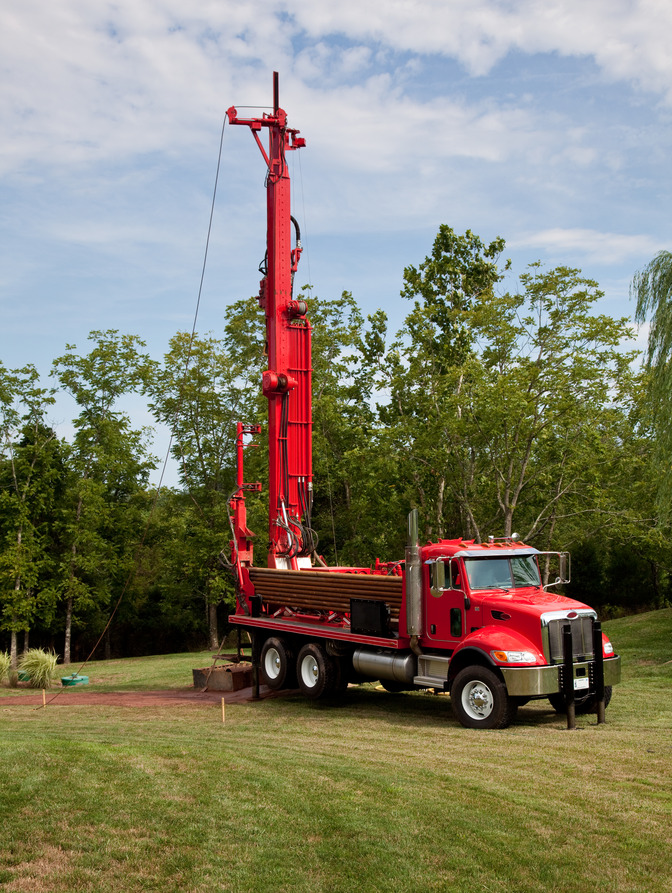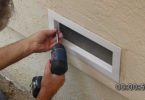
There are numerous reasons why someone may want to drill water wells on their property. The person may want a well to supplement or replace the supply of municipal water. Or perhaps drilling a well is the only way to obtain water on the property. No matter what the reasons are, the person will certainly need to know how much it costs to drill water wells prior to beginning the project.
Cost factors
There are several cost factors to take into consideration. For instance, licenses and special permits may have to be obtained. Equipment or tools may have to be purchased or rented. Most likely, it will be necessary to either hire professional well drillers or at least hire some general laborers to help with the drilling. Then there is the cost of the materials and water tests to consider. Prices for permits, licenses, labor, water testing, and materials differ from one location to the next. The quality of the material and water may also affect the total cost. And the size and type of water system added to the water well will definitely affect the total cost.
Sample Prices
Most licensed drillers charge per depth/diameter foot and include the permits and basic materials, such as the well casing, in the estimated cost. The average residential water well ranges between 30-200 feet deep. For residential water wells in the United States, the price ranges from $15-$100 per foot, with a total price range from $3,000-to over $50,000. However, the rest of the water system, such as the electric connections, pump, pipes leading to the home, and storage system are typically not included in the estimate. So it may be necessary to add an additional $800-$2,000 to the amount to the contractor’s quotes or ask that the cost of the complete water system be included. Even the drilling company cannot give an exact price until after the well has been drilled and the water has been tested.
Estimating Total Price
Although the total cost will vary from project to project, there are ways to get an estimated total price. The easiest and best way is to get a few licensed well drillers to provide you with an estimated cost for your specific location and choice of water system. Since they drill wells as a profession, they are also the most qualified people to obtain advice from if you are planning on drilling your own water well.
Most professionals do not mind answering a few questions as to what type of material is suitable to your terrain and environment, as well as what the most recent prices are for labor and materials. They would also most likely have up-to-date information regarding what permits or licenses are required for the location, and the costs of those permits/licenses. Usually, there is no legal obligation to hire a company once you have obtained a consultation, and most companies will provide free estimates. However, some states legally require that a licensed driller be utilized. This is due to the major impact an improperly constructed well can have on the environment. So having several professional contractors give you a quote may save you time in the long run.
The hardest way is to figure out the total cost on your own. This is because you have to have a good idea of how many feet into the ground the well will reach. You will also need to know which permits or licenses are required. And you will have to research which types of materials and drilling is most suitable for the location of the well. You will also need to know the quality of the water in order to properly plan which additional water system to utilize.
Contracts
It is highly suggested that you read the contract over carefully when hiring a professional drilling company. They are not legally bound to hit water when drilling a well, since no one can guarantee there is an accessible supply of water under your property. You may want to ensure there is a clause for possibly drilling a second well if the first one does not work out. You may also want to ensure it is clear who will obtain and pay for any required permits. Additionally, it is a good idea to clarify who will purchase and install the remainder of the water system. And you should also make sure it is clear who will clean up the mess on the property after the well is finished. Moreover, it is best to ensure the contractor has proper liability insurance to cover any injuries and property damage that may occur during the project.
<>








Thanks for telling me that there are factors to consider if I want to drill a well in my property. I think it would be helpful if I consult a service that does this to make sure that I’ll be prepared for the costs that I’ll have to face in the future. Since there are certain times in the summer where we run out of water in our area, maybe having a water well in our home will give us constant supply.
Commercial plumbing suppliers close to the are of construction will have a feel for who is reliable and who isn’t.